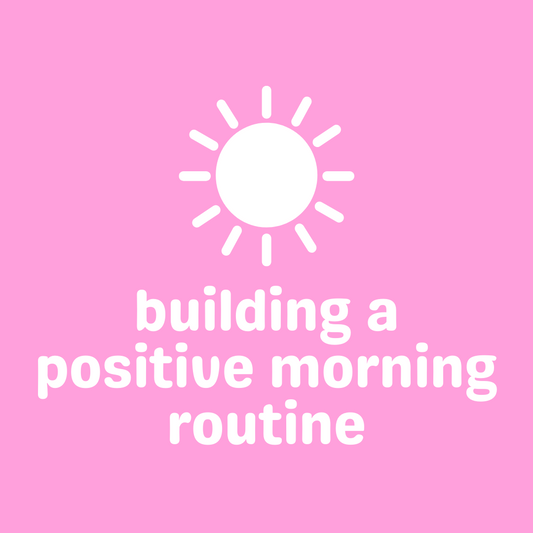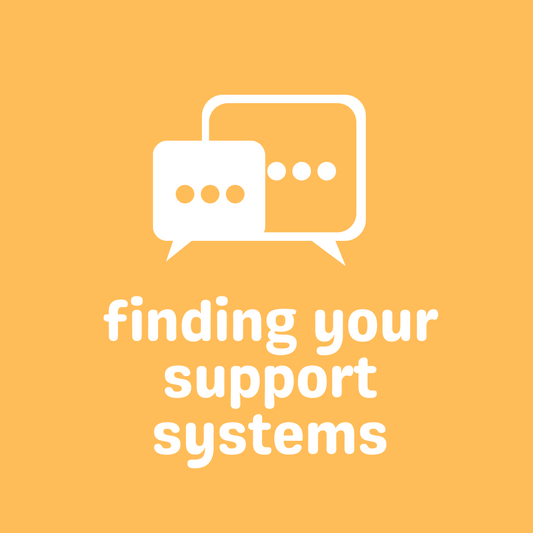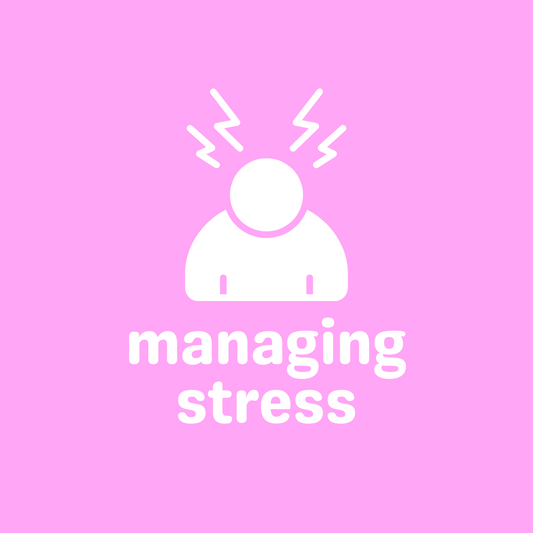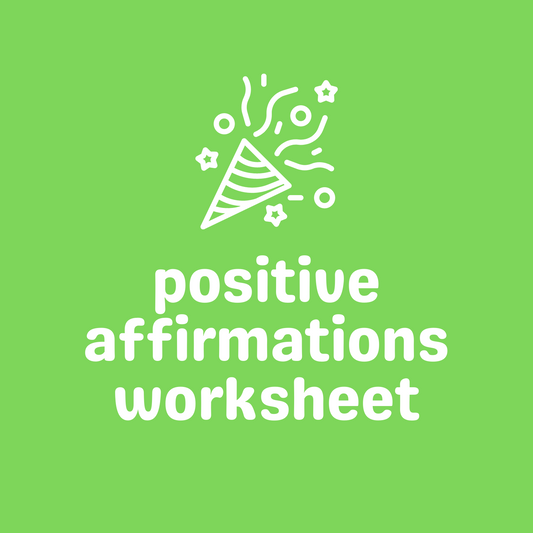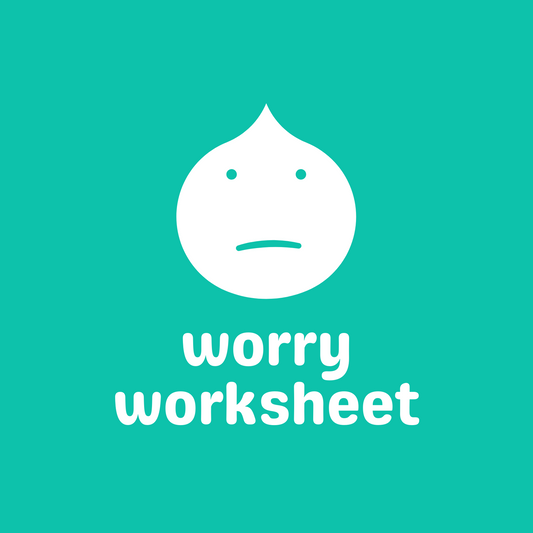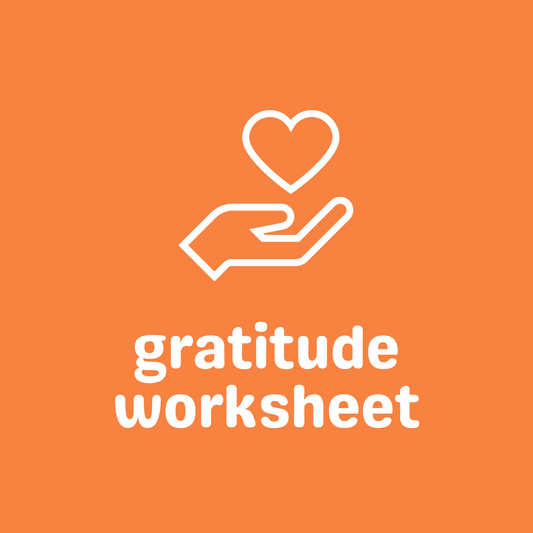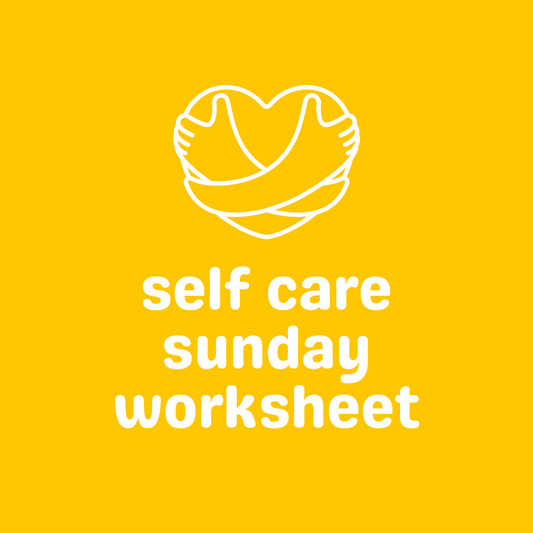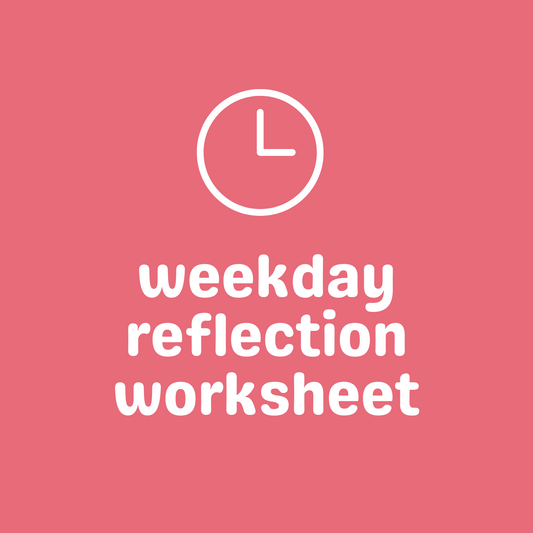Mental Health and Wellbeing Resources
To expand mental health resources and availability, we have created resources for download, blog posts with our mental health and wellbeing interviews, mental health FAQs, and more.
Resource Downloads
Explore our collection of FREE mental health downloads. These are printable or digital exercises. Add to cart and check out as usual with no charge.
-
back to school resource bundle
Regular price $0.00 USDRegular priceUnit price / per -
building a positive morning routine worksheet
Regular price $0.00 USDRegular priceUnit price / per -
finding support systems worksheet
Regular price $0.00 USDRegular priceUnit price / per -
managing stress worksheet
Regular price $0.00 USDRegular priceUnit price / per -
weekly mood mapping
Regular price $0.00 USDRegular priceUnit price / per -
positive affirmations worksheet
Regular price $0.00 USDRegular priceUnit price / per -
worry worksheet
Regular price $0.00 USDRegular priceUnit price / per -
gratitude worksheet
Regular price $0.00 USDRegular priceUnit price / per -
self care sunday worksheet
Regular price $0.00 USDRegular priceUnit price / per -
weekday reflection worksheet
Regular price $0.00 USDRegular priceUnit price / per
Mental Health FAQs
What do I do in a mental health emergency?
A mental health emergency or crisis is a life-threatening situation in which an individual threatens to harm themselves or others or is severely out of control of their actions and emotions.
In this situation, CALL 911 IMMEDIATELY.
Emergency care will be the fastest through 911. If the situation allows you to go to an emergency room safely, that is also an option.
How can I support someone who is struggling?
According to Mind, a mental health advocacy and resource center. The full article can be found at this link.
Emotional Support You Can Offer
- Listen. Simply giving someone space to talk, and listening to how they're feeling, can be really helpful in itself. If they're finding it difficult, let them know that you're there when they are ready.
- Offer reassurance. Seeking help can feel lonely, and sometimes scary. You can reassure someone by letting them know that they are not alone, and that you will be there to help.
- Stay calm. Even though it might be upsetting to hear that someone you care about is distressed, try to stay calm. This will help your friend or family member feel calmer too, and show them that they can talk to you openly without upsetting you.
- Be patient. You might want to know more details about their thoughts and feelings, or want them to get help immediately. But it's important to let them set the pace for seeking support themselves.
- Try not to make assumptions. Your perspective might be useful to your friend or family member, but try not to assume that you already know what may have caused their feelings, or what will help.
- Keep social contact. Part of the emotional support you offer could be to keep things as normal as possible. This could include involving your friend or family member in social events, or chatting about other parts of your lives.
Practical Support You Can Offer
- Look for information that might be helpful. When someone is seeking help they may feel worried about making the right choice, or feel that they have no control over their situation. Our page on making yourself heard will give you some ideas on what research you can do, and ways you can help someone think about what might work for them.
- Help to write down lists of questions that the person you're supporting wants to ask their doctor, or help to put points into an order that makes sense (for example, most important point first).
- Help to organise paperwork, for example making sure that your friend or family member has somewhere safe to keep their notes, prescriptions and records of appointments.
- Go to appointments with them, if they want you to – even just being there in the waiting room can help someone feel reassured.
- Ask them if there are any specific practical tasks you could help with, and work on those. For example, this could include:
- Learn more about the problem they experience, to help you think about other ways you could support them. Our website provides lots of information about different types of mental health problems, including pages on what friends and family can do to help in each case.
What do I do if someone does not want my help?
YOU CAN:
- Be patient. You won't always know the full story, and there may be reasons why they are finding it difficult to ask for help.
- Offer emotional support annd reassurance. Let them know you care about them and you'll be there if they change their mind.
- Inform them how to seek help when they're ready
- Look after yourself and make sure you don't become unwell yourself.
YOU CANT:
- Force someone to talk to you. It can take time for someone to feel able to talk openly, and putting pressure on them to talk might make them feel less comfortable telling you about their experiences.
- Force someone to get help (if they're over 18, and it's not an emergency situation). As adults, we are all ultimately responsible for making our own decisions. This includes when – or if – we choose to seek help when we feel unwell.
- See a doctor for someone else. A doctor might give you general information about symptoms or diagnoses, but they won't be able to share any specific advice or details about someone else without their agreement.
How can I be involved in You Are Company's mission?
You can be involved in You Are Co.'s mission by...
- Following our social media page (@youarecompany on all platforms)
- Participating in our Instagram Community Series, Sunday Discussions, and Mini Messages
- Subscribing to our email list to get the newest updates and promotions
- Reach out if you want to work with You Are Co. in your school, extracurricular club, project, etc.! We love hearing new ideas! Email anna@youarecompany.org.
Join the Conversation
We're beginning to compile mental health and well-being information through interviews, community discussions, and personal research. Join the conversation below by reading through our favorite discussions and conversations with the best in the industry and other passionate people. Check back for updates!
-
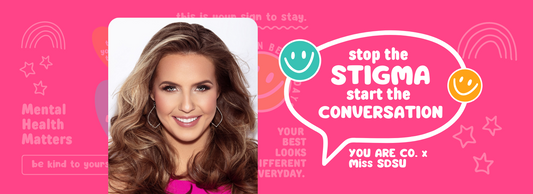
Meet Miss SDSU, Katie Milbrandt
When we look at our amazing ambassador team, there are so many unique and passionate individuals making changes in their community. One of our team members, Katie Milbrandt, embodies everything it...
Meet Miss SDSU, Katie Milbrandt
When we look at our amazing ambassador team, there are so many unique and passionate individuals making changes in their community. One of our team members, Katie Milbrandt, embodies everything it...
-

Athlete Mental Health with Gracie Rice
As we highlight the importance of taking care of your mental health in athletics, we talked with our ambassador Gracie Rice on her experience with mental health. Gracie is 20...
Athlete Mental Health with Gracie Rice
As we highlight the importance of taking care of your mental health in athletics, we talked with our ambassador Gracie Rice on her experience with mental health. Gracie is 20...

Inspiration for Mental Health Advocacy
My journey with mental health has had its ups and downs, which inspired me to create a platform and brand for mental health advocacy. I've struggled with anxiety and depression for years, at some point becoming one of the most significant parts of my life. Creating You Are Co. has helped me to share my experience with others and create the community I wished to find years ago.
The You Are Company community allows productive conversations about mental health to take place and fosters an open, honest place for people to connect and advocate for mental health. I am so proud of everyone who has contributed to our mission from our ambassador team, merchandise customers, and partners.
Subscribe to our emails
Join our email list for exclusive offers and the latest news.


